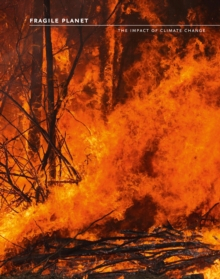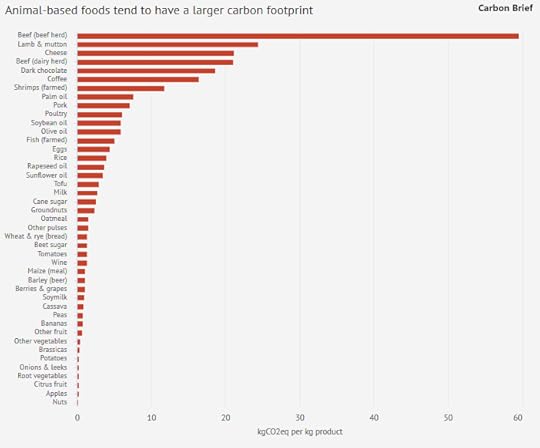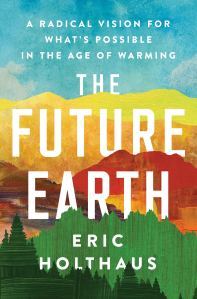Jeremy Williams's Blog, page 107
September 29, 2020
Who gets to tell the story of climate change?
About three years ago I began to think seriously about climate change and race. It was a subject I wanted to know more about, and so I went looking for a book about it. I couldn’t find any, and I ended up researching and writing the book I wanted to read – and which I hope to be able to publish in 2021*. But it raises an interesting question – not just why there aren’t any books on climate and race, but why so much of the climate story is being told by White people.
I try to keep up with the maj...
September 28, 2020
Book review: Fragile Planet
 Fragile Planet: The impact of climate change is a little different from the books I usually review here. It’s a book of photos showing the unfolding effects of climate change, drawn from all over the world. It’s also a book that gave my son the fear, and so it’s not going to be one that gets left out on the coffee table.
Fragile Planet: The impact of climate change is a little different from the books I usually review here. It’s a book of photos showing the unfolding effects of climate change, drawn from all over the world. It’s also a book that gave my son the fear, and so it’s not going to be one that gets left out on the coffee table.
As the fires on the front cover make clear, this is a fairly unflinching set of images. We are presented with flooded slums and inundated highways, satellite imagery of cyclones...
September 26, 2020
What we learned this week
Apologies for a slow week on the blog. I have spent this week writing the last 20,000 words of a children’s novel, which I finished yesterday. I really needed to write something funny after spending so long working on climate change and racism. No idea if it will come to anything at this point. Here are some things that happened this week while I was up in my attic, writing in the persona of an eight year old.
In a speech to the UN, Chinese president Xi Jinping announced that “China will scale u...
September 24, 2020
The footprint of animal based foods
I’ve featured these sorts of images before, but Carbon Brief’s new interactive article on the footprint of different foods is an instructive summary of climate friendly eating.
One again the vastly disproportionate impact of beef is obvious. If you want to do one thing to immediately reduce your carbon emissions, stop eating beef. You can do that today, at no cost.

The top five most carbon intensive foods on the list are based on animal products, with chocolate the surprise entry for its milk c...
September 22, 2020
How the world’s richest destroyed the climate
As longer term readers will be aware, the original title of this blog was Make Wealth History. I chose the name to highlight the fact that a fair and sustainable world is impossible if all the attention is on lifting the poorest out of poverty. There isn’t the ecological space for everyone on earth to enjoy a Western consumer lifestyle. Those in the richest countries have to shrink their consumption in order to make room.
The role of the richest in environmental destruction has rarely been prese...
September 21, 2020
Book review: The Future Earth, by Eric Holthaus
 Eric Holthaus is a meteorologist by training and a leading climate change journalist. I’ve been reading his work for years and have been looking forward to his first book, The Future Earth: A radical vision for what’s possible in the age of warming.
Eric Holthaus is a meteorologist by training and a leading climate change journalist. I’ve been reading his work for years and have been looking forward to his first book, The Future Earth: A radical vision for what’s possible in the age of warming.
It’s very much a turn of the decade book, knowing that the years ahead will be times of profound change. Taking 2020 as the starting point, Holthaus is “sketching an outline of what that change might feel like, decade by decade, until we have built a...
September 19, 2020
What we learned this week
I’ve written about food waste a few times before, and it’s usually in a British context. Here’s a useful summary report on food waste in the United States.
Facebook has launched a Climate Science Information Hub, and they are on track to meet their goal to be net zero carbon this year. Whether this makes up for their role in mainstreaming misinformation on everything from climate to vaccinations to a flat earth, is a matter of opinion.
Meteorologists have run out of names for Atlantic hurricanes...
September 17, 2020
Sustainable materials for Volta’s electric trucks
All manufactured products have an embodied carbon footprint – the carbon emissions from their production and from the extraction of the materials required. Electric cars might have no emissions in operation, but they still have embodied carbon. Because of the metals in the battery, they can sometimes have slightly higher embodied carbon than their fossil fuel counterparts.
That’s no reason to think that electric vehicles are a waste of time. Unless you’re running it entirely on pure coal power, ...
September 16, 2020
The ongoing collapse of our living planet
One of the founding inspirations for this blog is the Living Planet Index, produced every two years by WWF. They’ve been publishing their health-check on the world’s wildlife since 1998. I read it for the first time in 2006, and understood for the first time what a global decline in biodiversity means.
Looking back, it’s kind of embarassing to me that I didn’t understand this until my twenties. But as a child, almost everything I read about wildlife decline was framed around extinction. That ten...
September 15, 2020
Covid moonshots and the high price of normal
Last week it emerged that the Conservative government are prioritising mass testing as a response to the Coronavirus pandemic. Ideally, the entire country would be tested on a weekly basis, and then cleared to carry on with the normal lives. It’s ambitious, not least because the means to actually do it don’t exist yet. It is expected to cost £100 billion, and with typical overstatement Boris Johnson has named the moon landings and the Manhattan Project as comparable exercises.
There are other wa...



